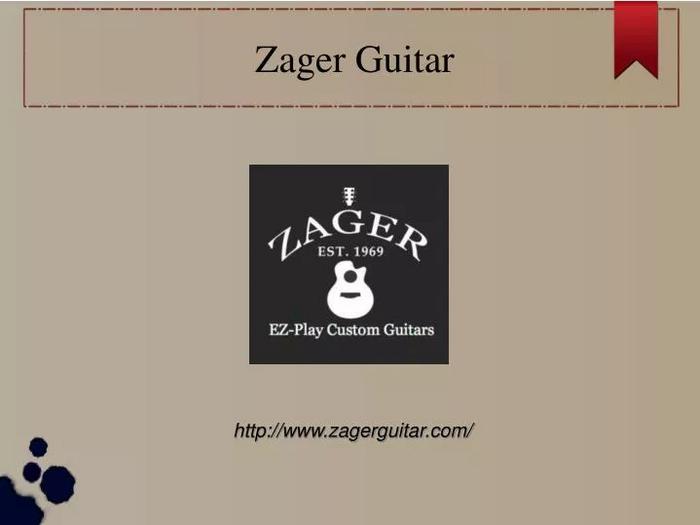As a well-versed veteran in guitar journalism, I’ve witnessed my share of divisive debates and controversies in this niche sector. But one issue has been plucking at my curiosity recently – the uproar surrounding Zager guitars.
Picture this: tensions still reverberating after an unending back-and-forth between a third generation guitar crafting family and a sector teeming with skeptical consumers. The debate? The quality and authenticity of Zager guitars – accusations ranging from inflated pricing, questionable reviews and marketing tactics, even to the core craftsmanship of the instruments. The impact was so profound; the conclusions are still being debated among guitar lovers and critics. And this, readers, is the narrative we dive into today – the ongoing Zager guitar controversy.
Through years of scrutiny, observation, and probing, I bring you a comprehensive guide – strumming between the controversial allegations, the public sentiment, industry responses, and the defended integrity of Zager.
This isn’t just any showdown in the world of musical instruments. This is about the heartstrings of artistry, commerce, credibility, and a melody of unanswered questions. Ready to explore this curiously controversial theme? The tune only gets richer from here.
The Origins of Zager Guitars

In my line of work as an investigative writer on music industry controversies with a particular focus on guitar makers, I invariably find myself caught in a web of fascinating stories. Each instrument, each brand, has a unique origin, a distinctive saga that shapes its narrative in the marketplace. The Zager guitars’ tale is no exception. Known for their controversy, they’ve managed to stir the pot for all the right and wrong reasons.
Having interacted and interviewed a myriad of guitar makers, and being a devoted guitarist myself, I’ve developed a deep appreciation for the craftsmanship, the artistic acuity, and the sheer dedication it takes to create quality instruments. I hope this perspective allows me to provide a comprehensive and balanced historical overview of Zager guitars, setting the stage for the heart of our exploration into the roots of surrounding controversy.
I recall my first encounter with the name Denny Zager. Like many, I knew of him less as a guitar-maker and more as one-half of the one-hit-wonder duo, Zager & Evans. Ironically, their 1968 chart-topper hit ‘In the Year 2525’ tells a dystopian narrative of technological advancements, a far cry from the accented strums and twangs of the acoustic world Zager would later immerse himself in.
From a 1960s hit song to an infamous guitar controversy, prepare to explore the unexpected journey of Denny Zager. As the music industry moved on, leaving Zager’s chart-topping days behind, his relationship with guitars took a new turn. He ventured into the world of guitar manufacturing, aiming to solve the ‘playability’ issues he had faced as a musician. In 1969, Zager guitars were born, bridging the gap between player ease and sound quality.
What Zager lacked in traditional luthier training, he made up for with his musician’s instinct. Each Zager guitar aimed at offering superior playability and ease for the players, fulfilling a promise that appealed to newbies, intermediate players, and those battling the steeper learning curve of mastering a guitar.
As we delve deeper into Zager’s origins, it is essential to note his audacious move, a decision that set a new precedent in the guitar world. Add to that an echo of controversy and the tapestry of the Zager Guitar story, intriguing as it is complex, starts to unfold. But this is just the beginning. Understanding the roots of Zager guitars prepares us to meet the controversial timeline of marketing strategies, quality concerns, endorsement allegations, and industry reactions that lie ahead.
As the exploration progresses, my conviction remains that it’s prudent to stir away from preconceived notions and deeply ingrained biases. This outlook has served me well in the past. It’s my sincere belief that this measured and nuanced approach will lay the groundwork for a more profound understanding, as this narrative continues to unfold.
Details of the Controversy
Quality and Craftsmanship Issues

Stepping into the heart of the controversy, we encounter what I consider the cornerstone of any musical instrument’s value: quality and craftsmanship. As someone who has dissected hundreds of guitars in my editorial career, I’ll use that expert eye to assess claims about Zager’s guitar quality and craftsmanship.
Being a notable player in the market of Asian-made guitars, Zager attracts attention for its commitment to producing quality guitars. While they’re known for their exceptional playability claim, critics argue that the quality doesn’t live up to the hype.
Inspections on Zager’s guitar quality highlight concerns. Common issues raised include poor fret work causing fret buzzing, subpar finishes, and overall shoddy craftsmanship. Such flaws detract from the enjoyability of playing, contradicting their marketing claim about Zager’s ease of play.
The detailing of their craftsmanship also invites scrutiny. Critics argue that the factory settings lack the finesse deserving of their high price tags. The assembly-line modernity present in these Asian-made guitars, they claim, hampers the creative soul that handmade guitars offer.
However, pointing out the issues is not to say Zager guitars are poor in their entirety. Many players still applaud the playability and comfortable necks of these guitars. But when it comes to making an investment, customers rightfully prioritize the quality and craftsmanship of the instrument they’re putting their hard-earned money into.
Thus, these quality and craftsmanship issues become a significant chapter in the book of the Zager guitar controversy. They illuminate the gap between Zager’s bold claims and the reality experienced by customers. As we continue our exploration of the controversy, we will further analyze the role these issues play in Zager’s marketing practices, public perception, and industry perception.
Review and Endorsement Allegations

Transitioning from a discussion on craft and quality issues, let’s delve into the accusations surrounding Zager’s reviews and endorsements. Drawing from my extensive experience with guitar reviews, I intend to provide insight into the genuineness of these claims.
Allegations of fake guitar reviews are a critical point of contention in this controversy. Such assertions question not only the authenticity of Zager’s endorsements, but reduce trust within the guitar playing community at large. Many critics suggest that Zager amplifies its reputation through manufactured testimonials, creating a cloud of suspicion around the praises by supposed Zager guitar players.
As we dissect these allegations, we must remember that the veracity of a review or endorsement is anchored in independent opinion and personal experience. This casts a rather unsettling shadow over Zager’s ratings and raises questions about their transparency.
Moving forward in our exploration of the controversy, it’s vital to assess the implications of these allegations in terms of marketing strategies and pricing. But for now, let’s ponder on the potential damage this cast doubt could inflict on Zager’s credibility and overall standing in the industry.
Marketing and Pricing Concerns

As someone with familiarity in creating marketing content for music brands, I understand that the marketing and pricing strategies used can drastically impact a brand’s perception. These strategies employed by Zager guitars have invited significant controversy.
Guitar marketing practices aren’t one-size-fits-all; different brands leverage different tactics. Zager guitars, however, have been accused of employing predatory marketing in music instruments.
Zager’s marketing tactics raise questions about a company’s responsibility towards its customers. In the creator-consumer dynamic, they must maintain honest communication. When this trust takes a hit, customers voice their discontent, adding fire to a growing controversy.
Then there is the matter of guitar pricing. One of the recurring questions about Zager Guitars concerns their pricing, which seems incongruent with the quality of their guitars. Such inconsistency between product quality and price fuels the controversy, overshadowing the potential merits of their instruments.
In a market as saturated as the guitar industry, navigating the fine line between aggressive marketing and misleading tactics, fair pricing and perceived value, is no easy task. But these are concerns that cannot be sidelined in the discussion of the Zager guitar controversy.
Response from the Industry and Consumers
Industry Response and Ethical Concerns

Now moving onto an equally critical aspect, the industry response and ethical concerns. Drawing from my rich contacts within the industry where maintaining ethical business conduct is my conviction, I’ve observed interesting perspectives around Zager’s approach.
One credible benchmark has been the BBB guitar business rating. Based on this, there seems an apparent inconsistency between Zager’s self-reported reputation and externally generated scores. These, in turn, raise questions about methodologies employed and business integrity.
Moreover, there’s been a sizeable deal of concern over Zager’s marketing and pricing strategies among guitar retailers and manufacturers. These concerns open up broader discussions about guitar industry ethics. Many industry insiders have raised eyebrows at Zager’s heavy reliance on celebrity endorsements and seemingly inflated prices which they argue manipulates consumers, raising ethical questions.
To my knowledge, neglecting these ethical norms could endanger trust within the guitar community, disrupting the industry’s harmony. Hence, it’s vital for businesses like Zager Guitars to commit to transparent practices not merely for their reputation, but for maintaining a fair and thriving guitar industry landscape.
Hence, as we step into exploring individual consumer perspectives in the upcoming sections, these industry viewpoints and ethical dileavals provide an integral backdrop for our understanding.
Consumer Views and Experiences

Moving further into our exploration of the Zager guitar controversy, I’ve tapped into my years at the helm of Guitar Player, leveraging my close interactions with readers and consumers, to examine consumer guitar reviews and experiences with Zager guitars. These viewpoints are integral to understanding the ‘Response from the Industry and Consumers’ part of our narrative, effectively contributing to the scope of considerations surrounding the brand’s standing.
Consumers reflect a product’s ultimate value. Their experiences and views provide brands with invaluable feedback on guitar refund policies, instrument quality, and much more. In the case of Zager, this has revealed some intriguing findings. It’s worth emphasizing that these insights aren’t just beneficial to the brand. It forms a broader picture that directly impacts other potential buyers and the industry as a whole.
Consumer experiences and reviews regarding Zager were largely mixed. Many praised the guitars’ playability and comfort, while others expressed dissatisfaction with perceived quality inconsistencies. These factors, coupled with the company’s refund policies, led some purchasers to feel short-changed.
A few customers reported superb customer service and prompt refunds, suggesting Zager does uphold its guarantee to some degree. However, others found the process cumbersome, noting that the refund didn’t include shipping costs, a detail not widely known.
In closing this section, it’s crucial to realize the importance of consumer voices in shaping perceptions and realities concerning any brand. By analyzing consumer views and experiences, we can further understand the elements at play in the Zager controversy. Next, we will delve deeper into the industry’s response and ethical concerns to continue forming a more well-rounded impression of this contentious issue.
FAQs
What is the Zager Guitar Controversy?
What are some criticisms of Zager Guitars’ marketing practices?
Why do some people praise Zager Guitars’ quality?
Overall, are Zager Guitars worth the investment?
Conclusion
In wrapping up the Zager Guitar Controversy, one cannot ignore the uncomfortable truths it may reveal about ethical concerns within guitar manufacturing and marketing. Drawing on my diverse experience in guitar journalism, I can confirm this scandal has permeated deep into the community, raising questions and provoking debates about a brand famed for its quality, reviews, and marketing practices.
Ethical manufacturing and marketing can shake or shape an industry’s reputation. Are we witnessing a tremor or a quake in the guitar world? Analyzing the Zager controversy offers an insight into what could be a stern wake-up call. This alleged manipulation of customer reviews, potential deficiencies in craftsmanship, and contentious marketing practices are pivotal issues, both for consumers and within the industry. They embody a concerning nexus of ethical dilemmas that must be addressed and rectified.
The chatter about the Zager controversy showcases the potential long-term effects of such ethical missteps. Undoubtedly, the controversy has damaged the trust and confidence of many consumers, leading to a backlash against the Zager brand. But more importantly, it has further underscored the importance and need for ethical conduct in the industry. A single controversy reflects a growing trend, a tremor slowly amplifying into a full-blown quake.
For the sake of consumers and the longevity of a reputable industry, the allegations against Zager Guitars serve as a pertinent and timely reminder. Concerted efforts, transparency, and integrity need to be at the core of rectifying and mitigating such problems. The industry must be scrutinized, and brands should be held accountable to ensure the tremor does not escalate into catastrophic trembles.
Exploring the Zager Guitar Controversy has been a journey into the heart of the guitar industry, laying bare some of its unintended contradictions and controversial practices. It has highlighted the extent and implications of falling short on reputable practices. As we continue to uncover and debate about such industry controversies, let’s also strive to advocate for more ethical, sustainable, and consumer-friendly practices where all can strum in harmony.

What is missing from this article is any clear information regarding the quality of the Zager manufacturing. They claim to be hand built. They kind of imply that Denny is involved in building them all. But this article makes a brief mention of Asian made guitars. Are these hand built? Are they hand built in Asian manufacturing plants? What does hand made mean versus hand built? Taylor always got a bit of flack for manufacturing it’s pieces, but I love my Taylor 914c and others tell me it is the best sounding guitar they have ever played. I grew up in Lincoln, and have been aware of Zager my entire life. I am considering getting a Zager, but their BOGO offer caused me to pause. I have always considered BOGO to be buy one get one of the same thing or perhaps one of the same but of lesser value. A Zager rep informed me that the free one was not even a Zager but Asian made guitar made to Zager’s specs. Now it sounds like ALL Zager guitars might be Asian made to Zager’s specs. I am more confused after reading your article that I was before.
My exact with Zager guitars was excellent. The ZAD80CE I ordered arrived promptly and was beautiful, played like a dream and sounded wonderful. But the AURA preamp system was not operating as I expected. I contacted ZAGER about the issue expecting they would send me to a local repair company to get it repaired or replaced. But instead ZAGER picked up the guitar and sent me a new one. THAT is customer service!
My ZAGER guitar is a very fine instrument on par with or better than many high end brands I have played and owned.
My experience with Zager guitars was excellent. The ZAD80CE I ordered arrived promptly and was beautiful, played like a dream and sounded wonderful. But the AURA preamp system was not operating as I expected. I contacted ZAGER about the issue expecting they would send me to a local repair company to get it repaired or replaced. But instead ZAGER picked up the guitar and sent me a new one. THAT is customer service!
My ZAGER guitar is a very fine instrument on par with or better than many high end brands I have played and owned.
I have the Zager 900D now sitting in its case for months now. It looks great and the notion of playability may have to do with the light strings they put on. I’ve had 4 Dreadnaughts and they all came with med gauge strings. They all had that sound expected by such an instrument . My Zagers’ was weak. No quality of sound. I’ve had for a year now and there are light scratches all over. I have guitars for 10-35 years played over and over and there is hardly a scratch or blemish. Its cost was around $2500 and I would give it up for $200. I’ve never seen a pro or non pro with one or playing one.